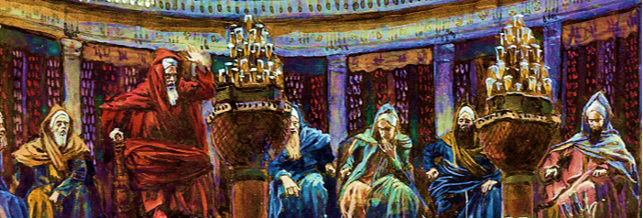WHAT SATAN NEVER WANTED
by Jeremy Chance Springfield
4/23/18

Satan didn’t want Yeshua dead.
Do I have your attention now?
In fact, it was probably the worst course of action in his mind.
His goal was to keep Messiah anywhere but going to the cross.
Why? Because the cross meant only one thing for Satan: the many would have their sins forgiven. This would be allowing the unthinkable.
Do I have your attention now?
In fact, it was probably the worst course of action in his mind.
His goal was to keep Messiah anywhere but going to the cross.
Why? Because the cross meant only one thing for Satan: the many would have their sins forgiven. This would be allowing the unthinkable.
But it is true that prophecy had spoken of the macabre destiny of the Messiah. Yeshua's coming was with a very specific goal in mind: to bear the sin of “many,” as the prophet Isaiah foretold in the book of the prophet Isaiah 53:10-12.
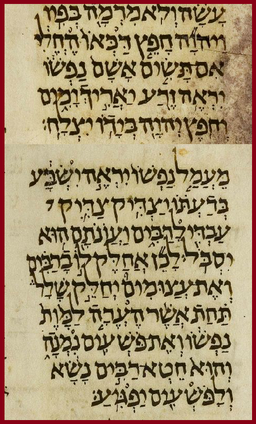
10 And it delighted YHWH to break him; He has worn him down when you make his soul a guilt offering; He shall see His seed, He shall lengthen his days, and the delight of YHWH by his hand shall succeed.
11 The misery of his soul he shall see, to be satisfied. By his knowledge My Just Servant shall be justification for the many, and bears their wrongs.
12 Therefore, I shall apportion for him the great, and with the mighty he shall apportion the spoil, because he poured out to death his soul, and with the sinners was counted, and he lifted up the error of the many, and for the sinners he entreated.
His entire purpose was to reclaim souls to the Holy One. This meant the total undermining of Satan’s world. Reaching the cross meant the failure of everything Satan had held onto since the beginning.
Indeed, when we read of the temptation of Yeshua by Satan in the wilderness, it begins with a physical temptation, and then turns into a spiritual deception temptation, and finally, when neither works (the only two real temptations man is ever faced with), Satan offered back to Yeshua the only card left on the table: the world entire – an option where Yeshua did not have to deal with the cross. [For a more thorough examination of this event, and the significance of it, please see my study: HIS TEMPTATION.]
Indeed, when we read of the temptation of Yeshua by Satan in the wilderness, it begins with a physical temptation, and then turns into a spiritual deception temptation, and finally, when neither works (the only two real temptations man is ever faced with), Satan offered back to Yeshua the only card left on the table: the world entire – an option where Yeshua did not have to deal with the cross. [For a more thorough examination of this event, and the significance of it, please see my study: HIS TEMPTATION.]

Notice carefully in all this that Satan did not attempt to kill Yeshua.
Instead, he sought to circumvent the cross.
Yeshua’s goal in His first coming was as the Messiah who would suffer and die. The gleaming platter placed in front of Him at the final temptation was instead the goal that Messiah will obtain at His second coming – the title and role of King of Kings and Lord of Lords – the world entire bowing at His feet. Satan did not want Yeshua going to the cross, because the fulfillment of the death of Messiah would mean the many being cleansed of their sin, so that the earth could finally be ruled by a man – which was the original intent of the Holy One in Eden.
If the cross came to pass, then the world would slip through Satan’s fingers like sand. Once he saw that Yeshua was focused on the suffering of the cross, that all His intent was to meet that goal, that every option, every choice made was leading Yeshua in a line undeviating to the crucifixion, then the tactics of the Enemy had to adapt to deal with a Messiah who refused to be deterred from His journey to death.
Since Yeshua would not give in to his twisted will, Satan’s hand was forced to act in the only way left to him: to preserve Yeshua’s life at all costs. It may sound incredibly strange to even read those words, but it is true. It doesn’t make him any less the bad guy, but it does put everything into proper place. According to repeated statements made as He taught His disciples, Yeshua was intent on going to Jerusalem to die at Passover (see: Matthew 16:21, 17:22-23, 20:18-19; Mark 8:31, 10:33; Luke 18:31-33). He had but one option, so His statements tell us: to offer Himself up of His own will and choosing – for us. Nobody had the power to take His life save He Himself. This reality, in fact, illuminates the sheer authority He possessed in the act of redemption. For more on this astonishing detail, see my study: A LIFE LAID DOWN. The cross meant that the sins of many would be lifted, and that meant Satan would lose what he had worked so hard to gain and keep. Consider this in the events of Mark 8:31-33, where Peter confronts Yeshua over His explicit declarations that He is going to be killed.
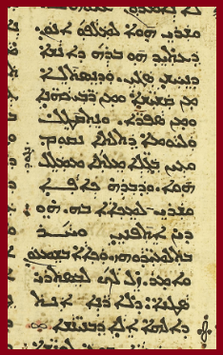
31 And He began to teach them that it was prepared of the Son of Man to suffer much, and to be rejected from the elders, and from the chief priests, and from the scribes, and to be killed, and at the day that is the third, to be raised.
32 And [with] eyes in the open He spoke. And Keefa took Him [privately], and began to reprove Him.
33 Yet, He turned, and gazed at His students, and made reproof with Shemun, and said, “You must get behind Me, Satana, for you reason not of Alaha, but of the sons of men!”
32 And [with] eyes in the open He spoke. And Keefa took Him [privately], and began to reprove Him.
33 Yet, He turned, and gazed at His students, and made reproof with Shemun, and said, “You must get behind Me, Satana, for you reason not of Alaha, but of the sons of men!”
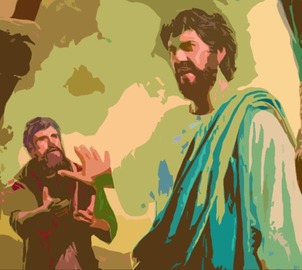
Under no circumstances could Satan allow Yeshua to go to the cross. It was out of the question. It was indeed such a problem that needed solving in Satan’s mind that we find that somehow, he caused Peter to speak with the will of Satan to Yeshua to seek to prevent the cross from occurring. Yeshua had gone from speaking of His impending doom with just His disciples and was apparently referencing it in the open, in the eyes of all who were present. Satan’s tactic was to speak through a trusted disciple and hope Yeshua would listen. Of course, this failed. Note also the detail that Yeshua turned away from Peter to gaze at the other disciples. This movement is something we find in the Talmud when a rabbi is in absolute disagreement with the opinion of someone else on a matter. They will turn and look in another direction, not even facing the individual. That is what Yeshua has done in this instance to reinforce His firm opposition to the divine disaster of what Peter’s words entailed.
This terror of Satan to keep Yeshua from the cross is also displayed in how he handled the betrayal of Judas. We find that Judas did not seek to betray Yeshua until He stated in Matthew 26:12 that the perfuming of His body which occurred in the town of Bethany right before Passover, was done, as He claimed: “for My burial.” The repeated statements made by Yeshua of His impending death – listed previously – finally caused Judas to act. Apparently, Judas viewed the intent of Yeshua as a fervor that needed time to simmer down, and so even if it meant he had to act in an unseemly manner, perhaps that was the only way to keep his rabbi from orchestrating His own demise. Thus, Judas went to the chief priests who wanted Yeshua dead and negotiated a deal just to turn his teacher over to their custody, as we see in Luke 22:2-6, but notice there is a detail provided in the Aramaic text that we need to pay attention to.
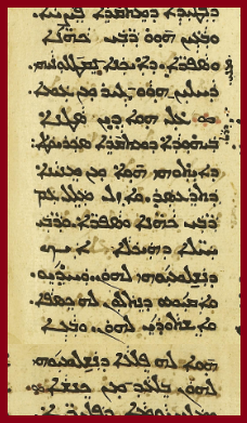
2 And the chief priests and the scribes were seeking how they should kill Him, for they had fear of the people.
3 But, Satana entered into Yihuda, who was called Skaryuta – he was numbered of the Twelve,
4 and he went, speaking with the chief priests and the scribes, and the chief authorities of the Temple, as to deliver Him to them.
5 And they were glad, and they established that they should give him silver.
6 And he promised to them, and sought for himself the occasion that he should deliver Him to them, apart from the congregation.
3 But, Satana entered into Yihuda, who was called Skaryuta – he was numbered of the Twelve,
4 and he went, speaking with the chief priests and the scribes, and the chief authorities of the Temple, as to deliver Him to them.
5 And they were glad, and they established that they should give him silver.
6 And he promised to them, and sought for himself the occasion that he should deliver Him to them, apart from the congregation.
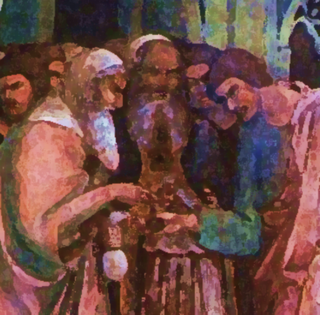
See how the text says that the chief priests wanted Yeshua dead, but that Satan then entered Judas to orchestrate his arrest only? This is an eye-opening event taking place. Satan attempted to intervene in the situation to keep Yeshua from being murdered in some unknown set-up by the religious authorities in Jerusalem. Notice even the detail of how Judas would do so is relevant: he must betray Yeshua to the authorities at a time and place where the crowd won't be present, lest they revolt. He wanted it kept quiet and as safe as possible. John 13:2 additionally tells us that Satan put this thought into the heart of Judas. The cross had to be stopped or else Satan would see everything fall apart.
This is admittedly not the typical way of viewing what was happening in the spiritual realm that fueled the actions of those around Yeshua leading up to the Passover and His crucifixion. In fact, it may seem as if what I am asserting is that everything must be turned on its head. In a way, that is true. But the reality of the Text and the information provided must make sense as a whole, and whatever that reality is, we must embrace it when it is perceived. If the idea seems too much to accept at first thought, consider the reaction of Judas in Matthew 27:3 when he learns that Yeshua had been convicted of blasphemy by the Jewish court and sent to receive the death penalty.
This is admittedly not the typical way of viewing what was happening in the spiritual realm that fueled the actions of those around Yeshua leading up to the Passover and His crucifixion. In fact, it may seem as if what I am asserting is that everything must be turned on its head. In a way, that is true. But the reality of the Text and the information provided must make sense as a whole, and whatever that reality is, we must embrace it when it is perceived. If the idea seems too much to accept at first thought, consider the reaction of Judas in Matthew 27:3 when he learns that Yeshua had been convicted of blasphemy by the Jewish court and sent to receive the death penalty.
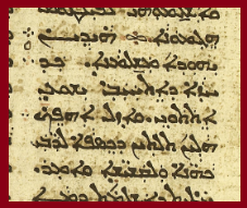
Afterwards, Yihuda the traitor, when he saw that Yeshua had been condemned, repented, and went, returning those thirty of the silver to the chief priests, and the elders.
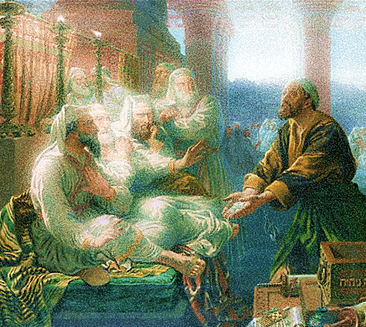
Had Judas intended his betrayal to end in a death penalty for Yeshua, he would not have arranged for it in the first place. His reaction above tells us everything we need to know – he did not intend for Yeshua to go to the cross! Rather, he expected his actions to prevent Yeshua from coming to any lasting harm, based on how he reacted to the news that his rabbi had been declared guilty of blasphemy. His subsequent actions further prove the remorse he felt for being used as the initiator of these dark events. It is truthfully beyond tragic in all respects, but the role was apparently necessary for prophecy to move along to the cross. Judas had no true evil intent in betraying his rabbi, but the consequences of his actions were out of his hands, like the silver he returned in his grief and sorrow. The cross was so close.
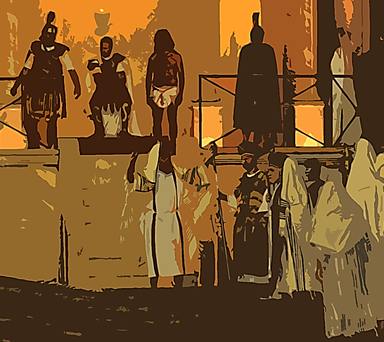
Upon the conviction of Yeshua by the chief priests, we find that they had to send Him to Pilate for the next step in their plans to come to pass. Pontius Pilate was the Roman authority ruling in Judea at that time, and as it was his jurisdiction, he oversaw the court of conviction for those deemed worthy of death by the Jewish authorities who existed under them and who were forbidden to carry out death penalties without the express allowance from the hegemony of Rome. He held the legal right to acquit or condemn any of those sent to him by the Jewish rulers who they deemed worthy of execution.
All four Gospel accounts mention his prominent involvement in the events leading up to the crucifixion, but we also find that all the accounts align with how he viewed the matter, as well. Matthew 27:18 even goes so far as to say he knew Yeshua was being treated this way out of envy from the chief priests and elders. Then, we read of an interesting detail in the next verse:
All four Gospel accounts mention his prominent involvement in the events leading up to the crucifixion, but we also find that all the accounts align with how he viewed the matter, as well. Matthew 27:18 even goes so far as to say he knew Yeshua was being treated this way out of envy from the chief priests and elders. Then, we read of an interesting detail in the next verse:
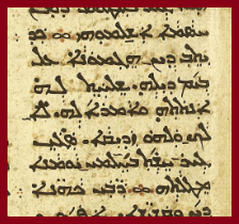
19 But, while the governor sat upon his tribunal, his wife sent to him, and said to him: “Be there nothing [between] you and that just man, for much have I grieved in a dream today on account of him!”
She wanted no harm to come to Yeshua through her husband's involvement, and this she says was on account of some strange dream she had that very day about Him! How astonishing! Who, I ask, would have been giving such a dream to this idol-bound Roman woman? Not the Holy One of Israel, but rather, the deceptive spirits of the world – the world as ruled by the Enemy himself – Satan. He impressed upon her a dream to strike fear in her heart, to move her to alter the involvement of Pilate towards Yeshua.
Why?
Because Pilate alone had the authority and fickle nature to give in to the demands of the populace. The Gospels consistently portray the reaction of Pontius Pilate towards Yeshua’s proposed guilt: while he saw no illegal activity in the person of Yeshua, he was also pliant enough in his standing with the Jewish rulers to send the innocent to their death – a character flaw we can be sure Satan was all too well aware of. Thus, with the compelling of the rabbis and priests seeking His immediate execution, Pilate attempted to exert some degree of self-respect and not give in immediately to the bizarre insistence of the religious elite towards one of their own rabbis. In an act surely influenced by the Enemy himself, Pilate passed the situation off to someone who was known for his cruelty – Herod, yet was himself surprisingly of no threat in the matter at hand. The Enemy was doing all he could to prevent Yeshua from going to the cross, even if it meant sending Him to none other than Herod! But the move was calculated, for Herod would not seek to harm Yeshua at all. Luke 23:4-11 gives the startling account that shows no Gentile was seeking the death of Yeshua on that dark Passover.
Why?
Because Pilate alone had the authority and fickle nature to give in to the demands of the populace. The Gospels consistently portray the reaction of Pontius Pilate towards Yeshua’s proposed guilt: while he saw no illegal activity in the person of Yeshua, he was also pliant enough in his standing with the Jewish rulers to send the innocent to their death – a character flaw we can be sure Satan was all too well aware of. Thus, with the compelling of the rabbis and priests seeking His immediate execution, Pilate attempted to exert some degree of self-respect and not give in immediately to the bizarre insistence of the religious elite towards one of their own rabbis. In an act surely influenced by the Enemy himself, Pilate passed the situation off to someone who was known for his cruelty – Herod, yet was himself surprisingly of no threat in the matter at hand. The Enemy was doing all he could to prevent Yeshua from going to the cross, even if it meant sending Him to none other than Herod! But the move was calculated, for Herod would not seek to harm Yeshua at all. Luke 23:4-11 gives the startling account that shows no Gentile was seeking the death of Yeshua on that dark Passover.

4 And Pilatos said to the chief priests, and to the congregation, “A thing of cause I do not find against this man!”
5 Yet, they called out, and they said, “He stirs up our people while teaching in all Yihud, and he began from G’lila and is now here!”
6 But Pilatos, when he heard the name of ‘G’lila,’ asked if the man was a G’lilaya.
7 And when he knew that He was from under the authority of Herades, he sent Him unto Herades, on account that he was in Urishlem in those days.
8 Yet, Herades, when he saw Yeshua, he was very glad, for he desired to see Him from a long time, on account that he heard much about Him, and hoped that some sign he should see from Him.
9 And many words he asked of Him, but Yeshua not a thing of a word answered him.
10 Yet, the chief priests and the scribes were standing, and they viciously ate at Him with accusations.
11 But Herades and his soldiers [treated] Him a fool, and when they had mocked Him, they clothed Him in a garment of scarlet, and they sent Him unto Pilatos.
5 Yet, they called out, and they said, “He stirs up our people while teaching in all Yihud, and he began from G’lila and is now here!”
6 But Pilatos, when he heard the name of ‘G’lila,’ asked if the man was a G’lilaya.
7 And when he knew that He was from under the authority of Herades, he sent Him unto Herades, on account that he was in Urishlem in those days.
8 Yet, Herades, when he saw Yeshua, he was very glad, for he desired to see Him from a long time, on account that he heard much about Him, and hoped that some sign he should see from Him.
9 And many words he asked of Him, but Yeshua not a thing of a word answered him.
10 Yet, the chief priests and the scribes were standing, and they viciously ate at Him with accusations.
11 But Herades and his soldiers [treated] Him a fool, and when they had mocked Him, they clothed Him in a garment of scarlet, and they sent Him unto Pilatos.
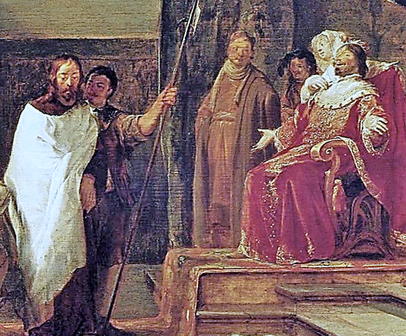
For as lethal as history records Herod to have been, we see that with the account of John the Baptist and here of Messiah, he was much more interested in being entertained by the impressive powers of the Galilean than in seeing to his legal duties. Removed from the possible threat of Pontius Pilate, Yeshua’s presence before Herod would likely be met with the same initial reaction he had towards His cousin John, whom he merely imprisoned, and kept as a curiosity, until his unforeseen demise. Although Herod was a truly evil man, according to Jewish history, Satan’s best hope for keeping Yeshua alive and out of the way, far from any cross, was to stand Him before Herod and have Him surely imprisoned, as well. Furthermore, the disregard Herod displayed towards the actions of the chief priests trying to further incriminate Yeshua illuminates well the hollow threat he posed to Messiah all along, exonerating the withering response of Yeshua to the Pharisees back in Luke 13:31-33, where they tried unsuccessfully to scare Messiah off by bringing up Herod’s supposed “deadly” interest in Him.
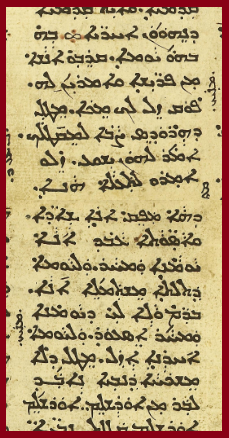
31 In that day drew near men from the Preeshe’, and they said to Him, “Do go! Go away from here, on account that Herades desires to kill you!”
32 Yeshua said to them, “You go! You tell this fox: ‘See! I cast out destructive spirits, and I perform healings today and tomorrow, and on the third day I will be ready!’
33 Nevertheless, it is fitting to Me that today and tomorrow I act, and the day after I go, on account that it is not able that a prophet should perish outside from Urishlem!”
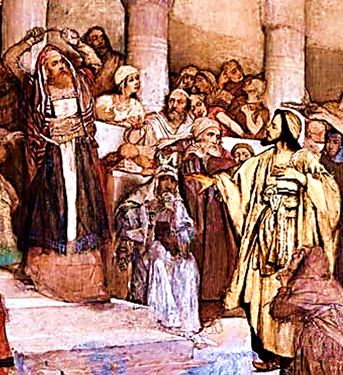
The response of Yeshua is essentially to shrug off their ominous threat of Herod, calling him a “fox” before the ears of the Pharisees. Herod was typically one to be taken seriously if threats were in the parlance of the Pharisees, but Yeshua knew something about His destiny that they did not yet know: Herod would not send Him to the cross.
Additionally, this description of "fox" used by Yeshua is not to suggest that Herod was “sneaky” or “sly,” as the English idiom would be understood today, but rather, this was a term used in rabbinic circles of a very specific type of individual, and is recorded also as such several times in the Talmud, to refer to someone who was viewed as an “amateur” by others, who were essentially unlearned or “small potatoes,” as the English idiom would suggest. The remark in proper context shows well that Yeshua knew His destiny was not to die at the hands of a clueless Herod in the northern region of Galilee, but ascend to Jerusalem in the south, and there go to His death at the knowing hands of the religious leaders of His faith.
Additionally, this description of "fox" used by Yeshua is not to suggest that Herod was “sneaky” or “sly,” as the English idiom would be understood today, but rather, this was a term used in rabbinic circles of a very specific type of individual, and is recorded also as such several times in the Talmud, to refer to someone who was viewed as an “amateur” by others, who were essentially unlearned or “small potatoes,” as the English idiom would suggest. The remark in proper context shows well that Yeshua knew His destiny was not to die at the hands of a clueless Herod in the northern region of Galilee, but ascend to Jerusalem in the south, and there go to His death at the knowing hands of the religious leaders of His faith.
It is worth pointing out that even though Satan was doing what he could to manipulate the men under his spiritual power in his dark kingdom, things still were not playing entirely to his advantage. He had escorted Yeshua from the potential danger of Pilate to the harmless Herod, and yet Herod, in his pride, played by his own rules: Yeshua would see no time in prison, as had John, but would instead be rebounded back into the path of the cross! So, not only was Herod no danger to Yeshua, he returned Him to Pilate to be set immediately back into the shadow of the cross! Despite the governor’s repeated declarations that he found no guilt in Yeshua, the purpose of Messiah was yet on track. It didn’t seem to matter how much Satan worked the Roman repulsion for the Jews or the vacuous specter of a king to challenge the Herodian hubris. No machinations of the Enemy were effective against the Passover plot to put an end to the nuisance from Nazareth. The cross loomed ever closer, and not only was nothing Satan doing working to prevent the cross, it seemed like the Jewish religious authorities were doing everything in their power to make that end inevitable!
There is no other way to say it, and it is by no way at all anti-Semitic. Once you see what was happening, you will be astounded at the amazing unity of the Messiah with His people and the plan of the Holy One. Rather, it is in all honesty prophecy fulfilled, and a praise to the Most High for the part played by the holy people in the awesome and awful act of His Messiah bearing the sin of the many.
In the scope of the Gospel accounts, we can take note of repeated instances in the text where death towards Yeshua is plotted by the religious leaders of that day (see: Matthew 26:3-4, 59, 66; 27:1, 20, 22; Mark 14:1, 55, 64; Luke 22:2; John 5:18; 7:1, 19, 25; 8:37, 40). His execution on Passover was the realization of a consideration long-held by His brothers in Israel. The most detailed account of their desire to put an end to Messiah’s ministry is found in John 11:46-53, where we read of a truly intriguing situation occurring.
There is no other way to say it, and it is by no way at all anti-Semitic. Once you see what was happening, you will be astounded at the amazing unity of the Messiah with His people and the plan of the Holy One. Rather, it is in all honesty prophecy fulfilled, and a praise to the Most High for the part played by the holy people in the awesome and awful act of His Messiah bearing the sin of the many.
In the scope of the Gospel accounts, we can take note of repeated instances in the text where death towards Yeshua is plotted by the religious leaders of that day (see: Matthew 26:3-4, 59, 66; 27:1, 20, 22; Mark 14:1, 55, 64; Luke 22:2; John 5:18; 7:1, 19, 25; 8:37, 40). His execution on Passover was the realization of a consideration long-held by His brothers in Israel. The most detailed account of their desire to put an end to Messiah’s ministry is found in John 11:46-53, where we read of a truly intriguing situation occurring.

46 And men from them, they went unto the Preeshe’, and they told them every thing that Yeshua had done.
47 And the chief priests and the scribes congregated, and they said, “What shall we do, for this man performs many signs!
48 And if we leave him as such, all men will trust in him, and the Rumayi, coming, shall take our country and our people!”
49 Yet, one from them, whose name was Qayafa, was the chief priest that year, and he said to them, “You do not know a thing,
50 and neither do you reason that it is profitable for us that one man shall die for the people, and not all the people should perish.”
51 Yet, this from the desire of his soul he did not say, but on account that he was the chief priest that year, he prophesied that Yeshua was prepared to die for the people,
52 and not only for the people, but even that the sons of Alaha who were scattered should be congregated unto one!
53 And from that day they reasoned that they should kill Him.
47 And the chief priests and the scribes congregated, and they said, “What shall we do, for this man performs many signs!
48 And if we leave him as such, all men will trust in him, and the Rumayi, coming, shall take our country and our people!”
49 Yet, one from them, whose name was Qayafa, was the chief priest that year, and he said to them, “You do not know a thing,
50 and neither do you reason that it is profitable for us that one man shall die for the people, and not all the people should perish.”
51 Yet, this from the desire of his soul he did not say, but on account that he was the chief priest that year, he prophesied that Yeshua was prepared to die for the people,
52 and not only for the people, but even that the sons of Alaha who were scattered should be congregated unto one!
53 And from that day they reasoned that they should kill Him.
This passage really says all that needs to be said of the matter, if we are paying close attention. The priests and the Pharisees are shown plotting to kill Yeshua repeatedly in the Gospels, and yet this account puts all those desires into a perspective that is somewhat startling, but also enlightening. They felt like Yeshua had to die for the safety of the entire nation of Israel, for the preservation of the Hebrew people from the threat of Rome destroying them. If they didn’t do something about Yeshua, if He didn’t take the fall for them, then the whole nation stood the risk of being lost.
Pay careful attention to what happened in the above passage: The desire to oppose Him was in truth the spirit of prophecy at work among the religious leaders of His people – Pharisees, priests, scribes – all the rabbis of spiritual merit during that time in Judea were hearing the desire of the Holy One, even if the reason they assumed was wrong! It wasn’t the everyday folk who saw what needed to happen – the crowds loved Yeshua and did not seek to stop Him. No, it was those who had dedicated their lives to the service of the Most High who were given an insight to see that something dangerous and unpleasant needed to happen in regards to their most-longed-for Messiah.
Pay careful attention to what happened in the above passage: The desire to oppose Him was in truth the spirit of prophecy at work among the religious leaders of His people – Pharisees, priests, scribes – all the rabbis of spiritual merit during that time in Judea were hearing the desire of the Holy One, even if the reason they assumed was wrong! It wasn’t the everyday folk who saw what needed to happen – the crowds loved Yeshua and did not seek to stop Him. No, it was those who had dedicated their lives to the service of the Most High who were given an insight to see that something dangerous and unpleasant needed to happen in regards to their most-longed-for Messiah.
Think about that.
This unphased focus of the religious elite inevitably wore down the resolve of Pilate to keep Yeshua from the death penalty. Although he appears in the four Gospels to have attempted in every way possible to keep Yeshua from the cross, he gave in at last, and absolved himself of the responsibility for the death of a man in whom he found no guilt. Matthew 27:24-26 tells us of that moment when all of Satan’s maneuvering crumbled before his eyes.
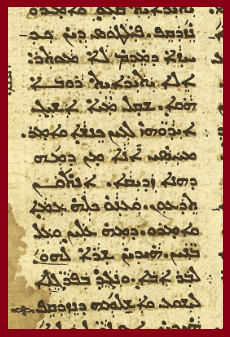
24 Yet, when Pilatos saw that not a thing was gained, but instead, a clamor was gaining, he took water, washed his hands before the eye of the congregation, and said, “I am pure from the blood of this Just one. You will know it.”
25 And all the people, they replied, and they said, “His blood is upon us, and upon our sons!”
26 Afterwards, he released to them Bar-Abba, and they beat Yeshua with whips, and they delivered Him up that He should be crucified.
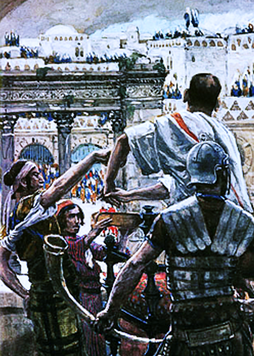
So it is that despite the efforts of the Enemy to preserve the life of Yeshua on that tumultuous Passover, He was sent still to His death on the cross, with no cleverly-conspired satanic machinations able to bar Him from the gruesome fate on the wood that would bring forgiveness to many. What Satan never wanted ended up happening anyway, and there was nothing the Enemy could do about it.
The edicts he had surely set in power in Roman law to prevent the Jewish people from carrying out their own death penalty, the seemingly sanguine placement of Pontius Pilate who would bat away the calls for death by the priests, and the puppet-show of Herod all failed Satan in one day. The laws still worked in favor of the desires of the Jewish rulers to send an innocent man to death. Herod the half-breed was seen at last to be harmless, being reduced to a seeker of thrills instead of any semblance of duty. The wishy-washy Pontius Pilate chose to be the latter that day and washed his hands in purity of being blamed for the coming execution: Messiah went at last to fulfill the wishes of the rabbis and the ruling priests and take His place upon the wood.
The edicts he had surely set in power in Roman law to prevent the Jewish people from carrying out their own death penalty, the seemingly sanguine placement of Pontius Pilate who would bat away the calls for death by the priests, and the puppet-show of Herod all failed Satan in one day. The laws still worked in favor of the desires of the Jewish rulers to send an innocent man to death. Herod the half-breed was seen at last to be harmless, being reduced to a seeker of thrills instead of any semblance of duty. The wishy-washy Pontius Pilate chose to be the latter that day and washed his hands in purity of being blamed for the coming execution: Messiah went at last to fulfill the wishes of the rabbis and the ruling priests and take His place upon the wood.
Take careful note that the only people in all the Gospel accounts who sought to perform the “delight” of the Holy One towards the Messiah as mentioned initially in Isaiah 53 were the religious leaders of the Jewish people on that scandalous Passover. The Gentiles wanted Yeshua’s life preserved from harm. Satan is even recorded as twice influencing the decisions of Yeshua’s own disciples in effort to prevent Him from completing His trek to the cross. Only the religiously observant saw the horrific fate that lay in store for a man whom the masses loved. Only they had the resolve to see the matter through to its bloody end.
To truly appreciate what was going on in all this bizarre upside-down / who’s-on-who’s-side Passover plan of redemption, let us return once more to that passage from Isaiah 53:10-12 and look at the details again now that we hopefully have a better perspective on the matter.
To truly appreciate what was going on in all this bizarre upside-down / who’s-on-who’s-side Passover plan of redemption, let us return once more to that passage from Isaiah 53:10-12 and look at the details again now that we hopefully have a better perspective on the matter.
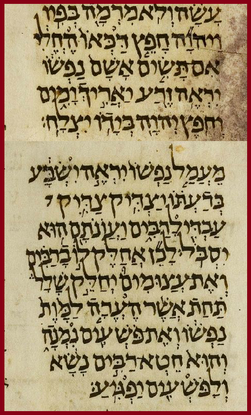
10 And it delighted YHWH to break him; He has worn him down when you make his soul a guilt offering; He shall see His seed, He shall lengthen his days, and the delight of YHWH by his hand shall succeed.
11 The misery of his soul he shall see, to be satisfied. By his knowledge My Just Servant shall be justification for the many, and bears their wrongs.
12 Therefore, I shall apportion for him the great, and with the mighty he shall apportion the spoil, because he poured out to death his soul, and with the sinners was counted, and he lifted up the error of the many, and for the sinners he entreated.

I want to point out one of the words that is repeated in this passage and show how it links to the topic of concern. In the above passage, we see the word “many” in verse 11, and then the word “great” and “many” again in verse 12. These terms need to be appreciated in light of what we have just learned about the key role of the Jewish religious leaders in sending Yeshua to the cross. There is a single Hebrew word that lay behind each of those three appearances. In the Hebrew text, it is the word RABBIM. At its root level, the term RAB literally means “great” as in size or amount. Thus, the rendering of “many” also fits entirely within the context of the definition. However, it can also be used to refer to a “teacher” of Torah – a RABBI. In such case, RABBIM is to be understood as referring to “the rabbis” of Judaism.
In fact, there is a famous (or infamous) account in the Talmud, tractate Bava Metzia 59b, where a certain rabbi, Rabbi Jeremiah, references the Hebrew term RABBIM as it appears in a specific place in the Torah meaning “the many,” and yet he turned the translation to mean instead “the rabbis.” By doing so, Rabbi Jeremiah attempted to assert that the rabbis, for better or worse, possessed a degree of authority as the recognized religious leaders of Israel in that day, and in that place of authority, their rulings were for the best for the people of Israel. While it can certainly be argued that this “for the best” is not always the case, it is yet vitally important to understand that this term of RABBIM is encountered in the text of Scripture and can be interpreted as “the rabbis,” in effort to bring out the reality of the religious situation of that time.
It is in that regard that I want to take a final look at Isaiah 53:10-12, and tweak the definition of RABBIM as it appears in the text so that the reader sees in those particular places the word as the rabbis of first century Judaism could have seen it, and so acted in faith even in the face of having to make a terrible decision. Read one more time the iconic passage from the prophet, with the instances of the Hebrew term RABBIM in the text inside red squares, and the fresh English definition of RABBIM highlighted in red.
In fact, there is a famous (or infamous) account in the Talmud, tractate Bava Metzia 59b, where a certain rabbi, Rabbi Jeremiah, references the Hebrew term RABBIM as it appears in a specific place in the Torah meaning “the many,” and yet he turned the translation to mean instead “the rabbis.” By doing so, Rabbi Jeremiah attempted to assert that the rabbis, for better or worse, possessed a degree of authority as the recognized religious leaders of Israel in that day, and in that place of authority, their rulings were for the best for the people of Israel. While it can certainly be argued that this “for the best” is not always the case, it is yet vitally important to understand that this term of RABBIM is encountered in the text of Scripture and can be interpreted as “the rabbis,” in effort to bring out the reality of the religious situation of that time.
It is in that regard that I want to take a final look at Isaiah 53:10-12, and tweak the definition of RABBIM as it appears in the text so that the reader sees in those particular places the word as the rabbis of first century Judaism could have seen it, and so acted in faith even in the face of having to make a terrible decision. Read one more time the iconic passage from the prophet, with the instances of the Hebrew term RABBIM in the text inside red squares, and the fresh English definition of RABBIM highlighted in red.
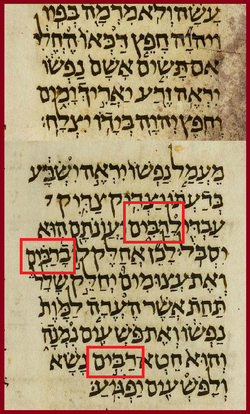
10 And it delighted YHWH to break him; He has worn him down when you make his soul a guilt offering; He shall see His seed, He shall lengthen his days, and the delight of YHWH by his hand shall succeed.
11 The misery of his soul he shall see, to be satisfied. By his knowledge My Just Servant shall be justification for the rabbis, and bears their wrongs.
12 Therefore, I shall apportion for him the rabbis, and with the mighty he shall apportion the spoil, because he poured out to death his soul, and with the sinners was counted, and he lifted up the error of the rabbis, and for the sinners he entreated.
With eyes anew, let us appreciate the depth of forgiveness obtained by Yeshua on the cross, performing with unflinching certainty the crucifixion act that Satan never wanted done. By His sacrifice of obedience unto death, Yeshua justified the rabbis who made the unimaginable call to destroy the single most likely candidate for the Messiah we have ever seen. He justified their difficult decision to let a single man die for the nation by doing just that very thing.
But not only that.
He didn’t stop there.
No, Yeshua was in the process of fulfilling the role of the Just Servant of Isaiah 53, and so He continued to prove they had made the right decision, even if for the wrong reason assumed. He lifted up their error on His tongue, and from the staggering horror of the cross He entreated the Most High for mercy on their behalf, as Luke 23:34 so astoundingly records:
But not only that.
He didn’t stop there.
No, Yeshua was in the process of fulfilling the role of the Just Servant of Isaiah 53, and so He continued to prove they had made the right decision, even if for the wrong reason assumed. He lifted up their error on His tongue, and from the staggering horror of the cross He entreated the Most High for mercy on their behalf, as Luke 23:34 so astoundingly records:
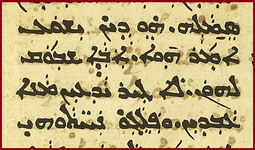
Yet, Yeshua, He said, “Father, You must forgive them, for they are not recognizing what they are doing!”
By His obedience, Yeshua has been promised that the rabbis shall be His portion. While it is true that most rabbis in history have not proclaimed that Yeshua is the Messiah, there will come a time when every tongue shall do just that very thing. All shall bend the knee and acknowledge His identity as the Messiah, and as Isaiah 2:3 tells us, RABBIM “many” / “rabbis” people shall go at His return to Zion to hear Torah from His mouth, again highlighted in red in the accompanying English translation.
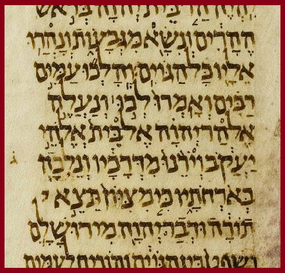
And shall go peoples [and] rabbis, and they shall say, “Do come, and let us ascend to Mount YHWH, to the House of the Eloah of Yaaqov, and He shall instruct us from His ways, and we shall walk in His paths,” for from Tziyon shall go out Torah, and the Word of YHWH from Yerushalam!
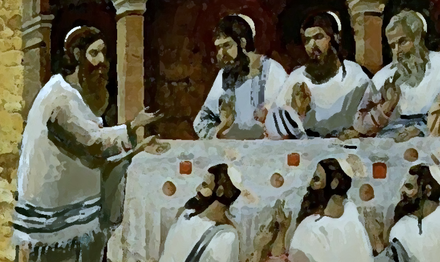
So it shall be.
When Yeshua returns, at His awesome second coming, where He will be lauded as King of Kings and Lord of Lords, He will sit and be accepted by His people as the true Messiah, with Israel not destroyed by Rome or any world power, but safe and made not only secure, but the head of the nations of the earth. Yeshua will then expound His Father’s Word as the Teacher par excellence. All will come to the greatest Torah teacher ever to walk this earth and learn what it means to live the Word from the Word made flesh – from the Messiah made certain before the eyes of every one of His people. All rabbis will acknowledge Yeshua as the Messiah and sit under His teaching as it goes forth from Zion. Whether rabbi or not, we have the opportunity to be there, learning the Word from the Just Servant who justifies us from our sins that sent Him to that cross, as well.
When Yeshua returns, at His awesome second coming, where He will be lauded as King of Kings and Lord of Lords, He will sit and be accepted by His people as the true Messiah, with Israel not destroyed by Rome or any world power, but safe and made not only secure, but the head of the nations of the earth. Yeshua will then expound His Father’s Word as the Teacher par excellence. All will come to the greatest Torah teacher ever to walk this earth and learn what it means to live the Word from the Word made flesh – from the Messiah made certain before the eyes of every one of His people. All rabbis will acknowledge Yeshua as the Messiah and sit under His teaching as it goes forth from Zion. Whether rabbi or not, we have the opportunity to be there, learning the Word from the Just Servant who justifies us from our sins that sent Him to that cross, as well.
I end this study by simply reiterating the point I have endeavored to make in all this:
What Satan never wanted happened despite all his attempts to thwart it.
What Satan never wanted was for Gentiles to be forced to acknowledge the guiltless nature of Messiah, but prophecy forced his hand.
What Satan never wanted was the Jewish people to kill our own King.
What Satan never wanted is what the rabbis dared to do on that unbelievable Passover 2,000 years ago: they sent Messiah to the cross, so Yeshua could forgive us all for doing what Satan never wanted.
What Satan never wanted happened despite all his attempts to thwart it.
What Satan never wanted was for Gentiles to be forced to acknowledge the guiltless nature of Messiah, but prophecy forced his hand.
What Satan never wanted was the Jewish people to kill our own King.
What Satan never wanted is what the rabbis dared to do on that unbelievable Passover 2,000 years ago: they sent Messiah to the cross, so Yeshua could forgive us all for doing what Satan never wanted.
All study contents Copyright Jeremy Chance Springfield, except for graphics and images, which are Copyright their respective creators.
